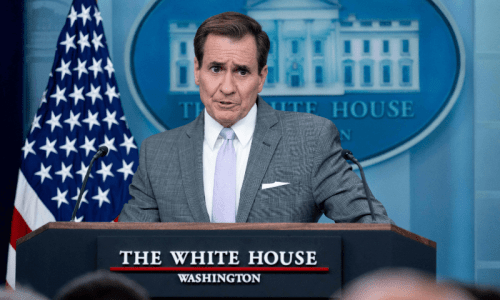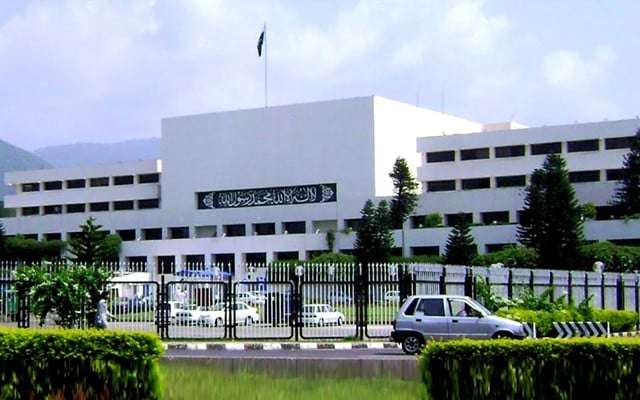The relationship between the United States and Pakistan has long been marked by a complex interplay of cooperation, shared concerns, and strategic divergences. Recently, a senior official from the White House clarified the nature of this relationship, stating that while the two nations have had a long-standing partnership, Pakistan has never been a formal ally of the United States, particularly in terms of treaty obligations.
John Kirby, the White House National Security Communications Advisor, addressed this nuanced positioning during a briefing in Washington. His remarks underline the delicate balance that defines US-Pakistan ties, shaped by mutual security interests but complicated by divergent geopolitical objectives.
H2: US-Pakistan Relations: A History of Cooperation without Formal Alliances
H3: Acknowledging Shared Security Concerns
The United States has had a strategic partnership with Pakistan, particularly when it comes to counterterrorism and efforts to combat extremism in the volatile Afghanistan-Pakistan border region. However, as John Kirby pointed out, the two countries have never formalized this cooperation through a defense pact or treaty. Despite this, Kirby emphasized the importance of Pakistan’s role in global counterterrorism operations, particularly in addressing cross-border violence from terrorist groups operating in Afghanistan.
“Pakistan was never a technical ally of the United States. There was no treaty of alliance with Pakistan,” Kirby remarked, responding to a question regarding the true nature of the bilateral relationship. This statement helps clarify the limited formal obligations between the two nations, despite years of collaboration.
H3: Long History of Counterterrorism Cooperation
One of the most significant aspects of US-Pakistan collaboration has been their shared goal of countering terrorism, particularly the threat posed by militant groups. In recent years, Pakistan has played an essential role in combatting terrorist organizations such as the Tehreek-i-Taliban Pakistan (TTP), which operates in the border regions between Pakistan and Afghanistan. The US has acknowledged these efforts in multiple statements, recognizing Pakistan’s contribution to counterterrorism initiatives.
The partnership has not been without challenges, as the nature of Pakistan’s military involvement in counterterrorism operations often led to differences in approach with the United States. However, despite occasional friction, both countries have continued to work together in countering terrorism and addressing other security concerns in the region.
H2: US’s Continued Commitment to Pakistan’s Fight Against Terrorism
H3: Acknowledging the Human Cost of Terrorism in Pakistan
One of the key elements of the US administration’s stance on Pakistan has been its recognition of the human cost that Pakistan continues to bear due to terrorism. In his recent remarks, John Kirby highlighted that Pakistan’s civilians and law enforcement personnel have been victims of violence coming from terrorist groups operating in Afghanistan. He emphasized the United States’ commitment to working with Pakistan to address these challenges, noting that the US recognizes the toll that cross-border terrorism continues to take on Pakistan’s people.
“We recognize that the Pakistani people still fall victim to terrorist violence coming from across that border,” Kirby stated. This acknowledgment reflects a broader policy of supporting Pakistan’s efforts to protect its citizens from the ongoing threat of terrorism and extremism.
In the first ten months of 2024 alone, Pakistan witnessed a staggering number of terrorist incidents, resulting in 351 civilian deaths and 573 law enforcement casualties. These figures underscore the severity of the threat posed by militant groups in the region and the continued necessity for international cooperation in combating terrorism.
H2: Strategic Engagement and Reluctance to Commit to a Formal Alliance
H3: US’s Reluctance to Enter Into a Treaty-Based Alliance with Pakistan
While the US has long recognized the strategic importance of Pakistan in regional security matters, particularly regarding counterterrorism efforts, it has consistently refrained from entering into a formal alliance. The absence of a treaty between the two nations means that the United States is not bound by any defense commitments to Pakistan, unlike its alliances with countries such as Japan, South Korea, and Israel.
This reluctance to formalize an alliance reflects Washington’s broader concerns about Pakistan’s internal political dynamics and the unpredictability of its political environment. The US has historically been wary of being tied to Pakistan’s internal issues, especially as they pertain to militant groups and nuclear security.
H3: Managing Bilateral Relations Amidst Geopolitical Shifts
At the same time, the Biden administration has made it clear that the United States values its partnership with Pakistan, particularly in addressing shared security challenges. Despite avoiding deeper strategic commitments, the US has continued to engage with Pakistan on a range of issues, including counterterrorism, counter-narcotics, and regional stability.
The US also continues to engage with Pakistan’s military establishment, recognizing the pivotal role it plays in maintaining security within the region. This relationship has been reinforced through discussions between the Pentagon and Pakistan’s military leadership, particularly in the areas of counterterrorism operations and intelligence sharing.
H2: Bilateral Engagement: Progress Amidst Challenges
H3: Cooperation on Counterterrorism and Other Global Challenges
Bilateral engagement between the US and Pakistan continues, with regular consultations on a range of global issues. Recently, Interior Minister Mohsin Naqvi and US Ambassador Donald Blome held talks focused on addressing global challenges such as terrorism. These discussions underscored the importance of continued cooperation between the two countries in combating terrorism and addressing regional security threats.
The US has also commended Pakistan for the steps it has taken to address terrorist financing and its efforts to tackle regional extremist networks. A report released by the US State Department in December highlighted Pakistan’s progress in countering terrorism financing, recognizing its commitment to international efforts to curb the activities of terrorist groups.
H3: A Fine Balance in US Policy Toward Pakistan
In many ways, the Biden administration’s policy toward Pakistan is an exercise in balancing the need for cooperation on security issues with a reluctance to enter into a more formal and binding relationship. The US continues to engage with Pakistan in a way that acknowledges the importance of the partnership, particularly in addressing shared security concerns, but it also avoids deeper commitments that might tie Washington’s hands in dealing with Pakistan’s internal politics and regional dynamics.
H2: The Future of US-Pakistan Relations: Navigating Complexities
H3: A Continued Focus on Counterterrorism and Regional Stability
As the relationship between the US and Pakistan continues to evolve, it is likely that both countries will continue to prioritize their counterterrorism cooperation and regional security efforts. Given the volatility of the region, particularly in relation to Afghanistan, it is clear that both nations will need to work closely together to combat extremism and ensure stability.
However, the lack of a formal alliance means that the relationship will always be shaped by pragmatism and the realities of the geopolitical landscape. The US will likely continue to value Pakistan’s role as a key partner in addressing terrorism and regional threats, but the absence of a formal defense treaty ensures that both countries remain flexible in navigating the complexities of their partnership.
FAQs
1. Is Pakistan a formal ally of the United States?
No, Pakistan has never been a formal ally of the United States. There is no treaty of alliance between the two countries, though they have a longstanding partnership in addressing counterterrorism and regional security issues.
2. How has Pakistan contributed to US counterterrorism efforts?
Pakistan has played a crucial role in combating terrorism, particularly in the Afghanistan-Pakistan border region, by partnering with the US to target terrorist groups like the Tehreek-i-Taliban Pakistan (TTP) and others.
3. What is the current state of US-Pakistan relations?
While the US and Pakistan have a cooperative relationship, particularly in counterterrorism, there is no formal defense alliance. The US recognizes Pakistan’s strategic importance but has avoided deeper commitments due to internal political issues.
4. Has the US acknowledged the human cost of terrorism in Pakistan?
Yes, US officials, including John Kirby, have acknowledged the ongoing terrorist violence in Pakistan, which continues to affect civilians and law enforcement personnel. The US has reaffirmed its commitment to working with Pakistan to address these challenges.
5. Will the US continue its partnership with Pakistan in the future?
Yes, the US will continue its partnership with Pakistan, particularly in areas like counterterrorism and regional stability, though the relationship will likely remain non-binding and pragmatic due to geopolitical complexities.



